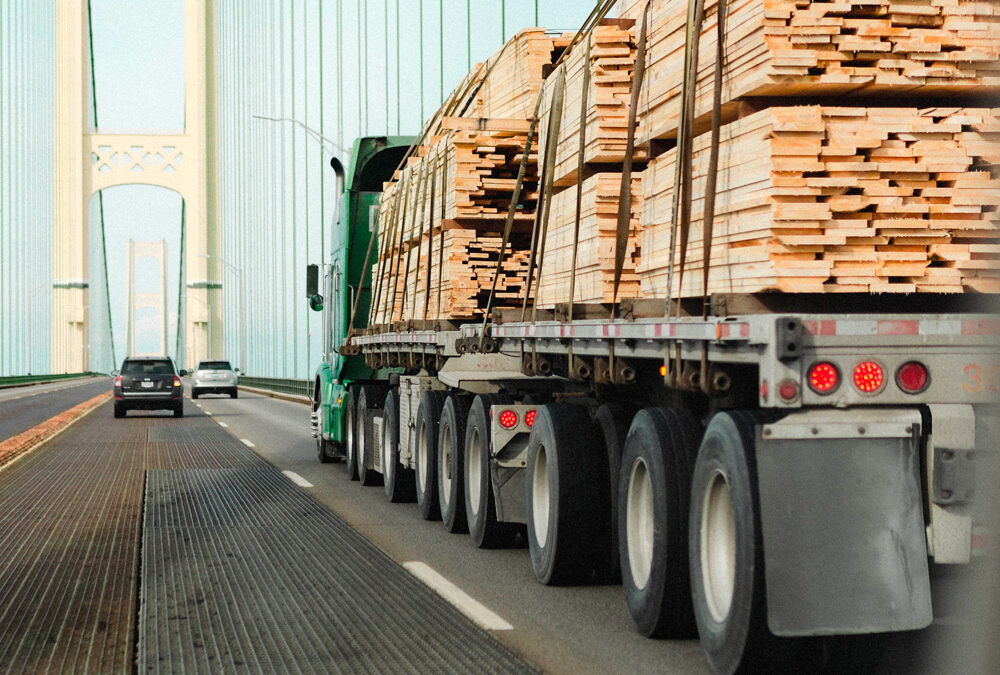Proper training and maintenance are important to prevent a potentially serious accident.
In this note, we will review the causes of potential accidents and 18 rules to prevent them.
CAUSES OF ACCIDENTS
- Rollovers: A large number of accidents are due to rollovers from driving too close to the edges of the road or from driving with poorly distributed weight.
- Backing Up: Many accidents involving trucks are the result of backing up without paying attention to objects behind the vehicle.
- Crashes: These types of accidents are usually the result of bad brakes, signals that do not work, or fatigued drivers.
- Transporting cargo: Failure to secure cargo properly can cause it to fall or cause loss of vehicle control.
- Overloading: Overloading trucks or trailers puts additional stress on the vehicle, particularly the brakes and tires. This can lead to loss of control, especially on descents.
- Weight Shifting Loads: Liquids in tanks will wobble back and forth if no baffle is installed on the tank. It is difficult to maintain control of the truck when the weight is moving, especially on rough roads.
TRUCK ACCIDENT PREVENTION
1. Proper maintenance is important to truck safety. The daily inspection should include checking the pressure and condition of the tires, brakes, and all other fluids, lights, and turn signals, as well as making sure that the mirrors and windshield are clean and properly adjusted.
2. Familiarize yourself with the operation and characteristics of your vehicle before driving it (example: the space it takes to make a turn) You need to be aware that a loaded truck will take longer to stop than other vehicles.
3. Follow all established traffic laws.
Four. You need to take safety breaks like stretching and breathing deeply. It also helps to get out of the vehicle and walk around it. If you feel drowsy, stop, and have some coffee or soup — don’t drive.
5. Increase your distance by following other vehicles on the road. Use the 4-second rule — count 1001, 1002, 1003, 1004.
6. Do not drive on soft shoulders on the roads as it may not support the weight causing the truck to overturn.
7. Be aware of road conditions and any areas that represent a potential problem on your route.
8. On hilly roads, try to drive as straight as possible, try to keep the shit distribution evenly.
9. Make sure the accesses and bridges are adequate to support the weight of a loaded truck.
10. Regularly inspect the brakes on semi-trailers.
11. Remember that there are blind spots in the rearview mirrors, especially keep this in mind when making a turn or changing lanes.
12. Sound your horn when backing up to signal your intention. If you are in a congested area have someone direct you or get out of the cab and review the situation before backing up.
13. Be alert for children in the area. Before moving a truck, check where the children are at all times.
14. Be aware of the type of load you carry so you will know its characteristics and its way of “behaving” on the road.
15. Before loading the truck, secure the wheels to prevent the truck from rolling.
16. Do not overload the vehicle. An overloaded truck is difficult to drive and stop. Also, excess weight puts stress on the tires, suspension, cooling system and drive train (Transmission, differential, shaft, axles, etc.).
17. When you park, put on the parking or emergency brake and move the shift lever to the neutral position if the engine is running.
18. Make sure the load does not have obstacles on top such as power lines or bridges.
Follow these rules on each of your trips and remember that prevention is not just a word, it is a practice that requires us to do it in each of our activities.
Had a cargo truck accident?
Schedule an appointment with us now! 210-342-2777
* Information obtained from servosa.pe








